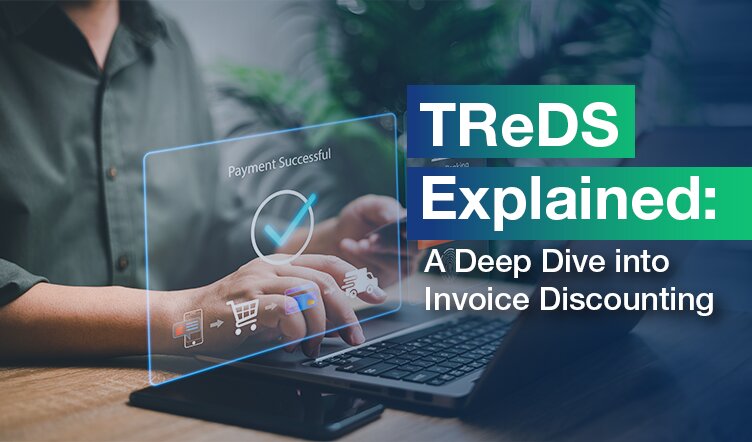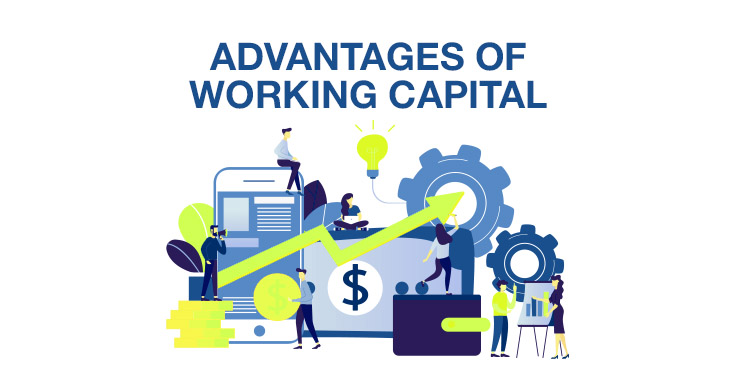Managing cash flow is crucial for the success and growth of any business. One of the key challenges organizations face is the delay in receiving payments against their invoices. This delay can often lead to a cash flow crunch, limiting the business’s ability to invest, expand, or take advantage of growth opportunities. Invoice finance provides a viable solution to this problem by enabling businesses to raise working capital against their unpaid invoices. In this blog, we will explore the different types of invoice finance, their pros and cons, and how M1xchange’s TReDS platform can help businesses unlock working capital opportunities.
What is Invoice Financing?
Invoice financing, also known as accounts receivable financing or receivables financing, is a financing solution that allows businesses to raise immediate funds by selling their unpaid invoices to a financial institution or a specialized finance provider. Instead of waiting for customers to pay their invoices, businesses can access a percentage of the invoice value upfront, providing them with the working capital needed to meet their operational and growth needs.
Types of Invoice Finance
There are two primary types of invoice finance: invoice factoring and invoice discounting. These types differ in terms of ownership, control, and the level of disclosure to customers.
Invoice Factoring
Invoice factoring is a type of invoice finance where businesses sell their invoices to a factoring company. The factoring company then assumes the responsibility of collecting payment from the customers. In this arrangement, the factoring company advances a percentage (typically 70-90%) of the total invoice value to the business upfront. Once the customers pay the invoices, the factoring company releases the remaining amount, minus their fees and charges.
Pros of Invoice Factoring:
- Immediate Cash Flow: Factoring provides businesses with immediate access to cash, enabling them to fulfil their working capital requirements without waiting for customers’ payment.
- Outsourcing Credit Management: Factoring companies take over the responsibility of credit management and collection, allowing businesses to focus on their core operations.
- Flexible Financing: Invoice factoring is often available to businesses with limited credit history or poor credit scores, making it an accessible option for small and medium-sized enterprises (SMEs) in need of quick and flexible financing.
Cons of Invoice Factoring:
- Loss of Control: In a factoring arrangement, the factoring company interacts directly with the business’s customers, potentially affecting the business’s relationship with its customers.
- Higher Costs: Factoring fees can be higher than other forms of financing due to the additional services provided by the factoring company, such as credit management and collection.
Invoice Discounting
Invoice discounting is a type of invoice finance where businesses raise funds against their invoices without transferring the ownership of the invoices to a finance provider. Instead, the business retains control over credit management and collection activities. In this arrangement, the finance provider advances a percentage of the invoice value (typically 70-90%) to the business, and the business is responsible for collecting payment from its customers.
Pros of Invoice Discounting:
- Maintain Customer Relationships: With invoice discounting, businesses maintain direct control and communication with their customers, ensuring that customer relationships remain intact.
- Confidentiality: Unlike invoice factoring, invoice discounting allows businesses to keep the financing arrangement confidential from their customers if they prefer.
- Flexibility: Invoice discounting provides businesses with flexibility in utilizing the funds raised. They can choose which invoices to finance and when to access the funds, based on their cash flow needs.
Cons of Invoice Discounting:
- Credit Risk: Unlike factoring, where the factor assumes the credit risk, with invoice discounting, the business carries the credit risk. If a customer fails to pay, the business is responsible for the loss.
- Limited Availability: Invoice discounting may not be available to businesses with weak credit histories or poor credit scores, as the finance provider relies on the creditworthiness of the business and its customers.
How M1xchange’s TReDS help in Raising Invoice Finance?
M1xchange’s Trade Receivables Discounting System (TReDS) is an innovative digital platform that facilitates invoice finance for businesses, especially SMEs. TReDS creates an online marketplace where businesses can upload their invoices, and financiers can bid on these invoices to provide timely financing against them.
With TReDS, businesses can benefit from:
- Faster Access to Funds: By uploading their invoices on the platform, businesses can receive faster access to funds by availing finance from multiple financiers who compete to provide the best rates.
- Improved Cash Flow Management: TReDS helps businesses unlock the value of their receivables, enabling them to maintain a healthy working capital cycle and manage their cash flow efficiently.
- Credit Risk Mitigation: TReDS provides an added layer of security as financiers on the platform get all details of the business on the platform itself, reducing the risk of credit default.
- Transparency and Efficiency: TReDS ensures transparency and efficiency in the entire financing process, from invoice submission to approval and disbursement, enabling businesses to have real-time visibility and control over their financing transactions.
Conclusion
Invoice finance offers a valuable solution to businesses looking to optimize their cash flow and raise working capital. By leveraging invoice factoring or discounting, businesses can bridge the gap between invoicing and payment, ensuring smooth operations and growth. With M1xchange’s TReDS platform, businesses can further simplify and streamline their invoice finance process. By embracing the right type of invoice finance and leveraging digital platforms like TReDS, businesses can unlock the full potential of their invoices, enhance their financial management, and seize growth opportunities.
Tags: Types of Invoice Finance Last modified: February 27, 2024















